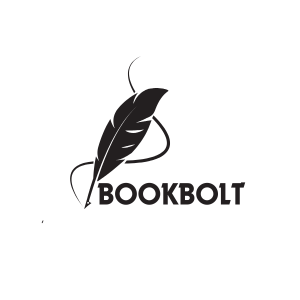In a world where instructions can be as clear as mud, mastering technical writing skills is like finding a unicorn in a haystack. Whether it’s crafting user manuals or creating online help guides, the ability to communicate complex ideas simply and effectively is a superpower. And who wouldn’t want to be a superhero in the office?
Technical Writing Skills
Technical writing skills involve conveying complex information clearly and succinctly. Effective communication is critical in technical documentation, helping users grasp intricate concepts quickly. It emphasizes clarity, ensuring that the intended audience understands the material without confusion.
Organization plays a significant role in technical writing. Writers should structure documents logically, guiding readers through information step by step. Headings, bullet points, and tables contribute to better comprehension, allowing users to find crucial data efficiently.
Another essential aspect is understanding the target audience. Writers need to assess the needs and expertise levels of readers. Tailoring content to their familiarity with the subject matter increases the likelihood of successful communication.
Additionally, strong research skills are vital. Writers should verify facts and ensure accuracy in technical documents. Reliable resources, such as industry standards or academic papers, offer valuable insights and enhance credibility.
Visual elements should be incorporated to aid understanding. Charts, diagrams, and screenshots can simplify complex ideas and provide visual context. Using appropriate visuals makes content more engaging and can significantly improve retention.
Moreover, mastery of language and grammar is non-negotiable. Precision in language fosters professionalism and clarity. Technical writers should strive for consistency in terminology throughout documents, avoiding ambiguity in explanations.
Lastly, continuous improvement through feedback is crucial. Reviewing and revising work based on input from peers or subject matter experts helps to refine writing quality. Engaging in peer reviews contributes to the development of strong technical writing skills over time.
Key Components of Technical Writing

Technical writing relies on several critical components to effectively convey information. Mastering these elements enhances communication clarity and accuracy.
Clarity and Conciseness
Clarity remains essential in technical writing. Writers must express complex ideas simply to facilitate understanding. Conciseness follows closely, as unnecessary jargon or wordiness can obscure the main message. Each sentence must convey relevant information without added fluff. Using straightforward language strengthens comprehension and keeps readers engaged. Active voice also improves clarity, making sentences more direct and easier to follow. Technical writers should avoid ambiguity, ensuring every term used contributes to the overall message.
Audience Awareness
Understanding the target audience ensures effective communication. Writers must assess the knowledge level and expectations of their readers. Tailoring content appropriately engages the audience and meets their specific needs. For example, novice users require simpler explanations compared to experts who appreciate detailed technical specifications. Recognizing diverse backgrounds and contexts influences language choices and content depth. Employing relatable examples also facilitates deeper connections with readers, enhancing retention and application of information. Audience awareness drives adaptation, ensuring clarity and relevance throughout the document.
Structure and Organization
A well-structured document enhances readability and efficiency. Logical organization guides readers through complex content in a systematic manner. Effective use of headings clearly delineates sections, allowing quick navigation. Bullet points and numbered lists further break down information into digestible parts. This approach aids comprehension and encourages skimming for key details. Consistent formatting, including fonts and styles, fosters familiarity and comfort. Following a clear structure not only highlights key points but also reinforces the overall message, making the content easier to understand and remember.
Techniques to Improve Technical Writing Skills
Improving technical writing skills involves implementing specific techniques that enhance clarity and engagement. Focusing on research and effective visual communication maximizes the impact of the content.
Research and Information Gathering
Gathering reliable information is fundamental to effective technical writing. Start by identifying credible sources such as academic papers, technical manuals, and industry publications. Prioritize fact-checking to ensure accuracy, as misinformation can compromise integrity. Engaging with subject matter experts provides deeper insights into complex topics. Taking thorough notes during the research process helps organize thoughts for writing. Using citation tools not only saves time but also streamlines the referencing process. Data gathered should align with the audience’s knowledge and needs, making content more relevant.
Effective Use of Visual Aids
Visual aids bolster comprehension in technical writing. Charts, graphs, and diagrams simplify complex information, allowing readers to grasp concepts quickly. Begin by determining which information benefits most from visualization. Incorporating visuals can break up large blocks of text and maintain reader engagement. Ensure that each visual element has a clear purpose and complements the associated content. Label visual aids effectively, providing concise descriptions that enhance understanding. Always consider the audience’s familiarity with the visual formats chosen, adjusting accordingly to maximize clarity. Integrating visuals not only reinforces key points but also improves retention of information.
Common Challenges in Technical Writing
Technical writing often presents challenges, including the use of jargon and the need to manage complex information effectively.
Jargon and Technical Language
Technical language can alienate readers if not used appropriately. Complex terms may confuse the audience, leading to misunderstandings. Writers should prioritize clarity over complexity, opting for simpler language when possible. Another effective approach involves defining necessary jargon the first time it appears, ensuring everyone understands the concepts being discussed. Crafting content that resonates with the knowledge level of the target audience remains vital. Striking a balance between technical accuracy and accessibility fosters better communication, ultimately enhancing documentation quality.
Managing Complex Information
Managing intricate information represents another significant challenge. It requires a structured approach to present ideas logically and coherently. Writers must break down complex concepts into smaller, digestible parts to facilitate understanding. Utilizing lists, tables, and bullet points helps convey critical information more clearly. Additionally, visual aids can simplify understanding, making the information visually appealing. Developing a clear hierarchy of information allows readers to navigate through the content smoothly. Prioritizing organization and clarity ultimately enhances the reader’s ability to grasp complicated subjects.
Conclusion
Mastering technical writing skills is essential in today’s information-driven world. Clear communication can transform complex ideas into accessible knowledge. By focusing on clarity organization and audience awareness writers can create impactful documents that resonate with readers.
Embracing continuous improvement through feedback and research enhances credibility and professionalism. Utilizing visual aids further simplifies understanding and engages the audience effectively. As technical writing evolves it remains a powerful tool that empowers professionals to convey information with confidence and precision. Investing time in developing these skills not only boosts career prospects but also enhances the overall quality of communication in any field.

